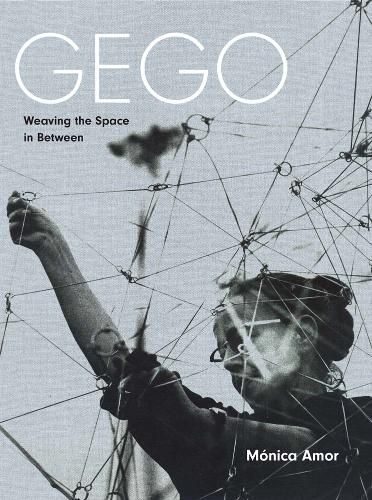Readings Newsletter
Become a Readings Member to make your shopping experience even easier.
Sign in or sign up for free!
You’re not far away from qualifying for FREE standard shipping within Australia
You’ve qualified for FREE standard shipping within Australia
The cart is loading…






An authoritative study of Gego, whose distinctive modernist practice sits at the intersection of architecture, design, and the visual arts
This important book is the first extended study of the life and work of German-born Venezuelan artist Gertrude Goldschmidt (1912-94), known as Gego. In locating the artist's contribution to postwar art and her important place in the global conversations around modernity, Monica Amor explores her intermedial practice as a model of cultural complexity at the "edge of modernity." In situating Gego's work alongside other local archives and against her European education and global reception, Amor offers a monographic model that complicates traditional approaches to history. She investigates the full range of Gego's work, including her furniture workshop, her teaching at schools of architecture and design, her seminal reticulareas, and her lesser-known prints. Through rigorous archival research, formal analysis, theoretical relevance, and deep exploration of historical context, this essential book unpacks Gego's radical recasting of the modern sculptural project through her engagement with architecture, craft, and design pedagogy.
$9.00 standard shipping within Australia
FREE standard shipping within Australia for orders over $100.00
Express & International shipping calculated at checkout
An authoritative study of Gego, whose distinctive modernist practice sits at the intersection of architecture, design, and the visual arts
This important book is the first extended study of the life and work of German-born Venezuelan artist Gertrude Goldschmidt (1912-94), known as Gego. In locating the artist's contribution to postwar art and her important place in the global conversations around modernity, Monica Amor explores her intermedial practice as a model of cultural complexity at the "edge of modernity." In situating Gego's work alongside other local archives and against her European education and global reception, Amor offers a monographic model that complicates traditional approaches to history. She investigates the full range of Gego's work, including her furniture workshop, her teaching at schools of architecture and design, her seminal reticulareas, and her lesser-known prints. Through rigorous archival research, formal analysis, theoretical relevance, and deep exploration of historical context, this essential book unpacks Gego's radical recasting of the modern sculptural project through her engagement with architecture, craft, and design pedagogy.